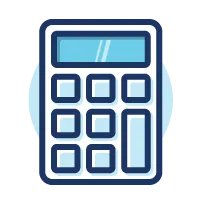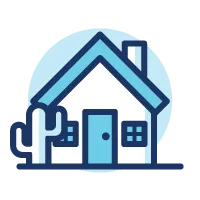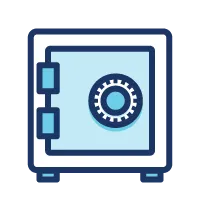Key Takeaways
- If you settle a debt, you will pay your creditor the agreed lump sum, then pay a 15-25% fee to the agency, and possibly a tax bill.
- With debt management programs, people can achieve success typically within 3 to 5 years.
- Debt management programs may charge a nominal monthly fee, which is typically offset by lower rates and fees.
If you’re trying to manage credit card payments and other debt in a challenging time, it’s time to consider your options. You may have heard of two popular approaches: debt settlement and debt management programs. But what are the details of each, and how do you know which is the right path for you?
Here we’ll break down debt settlement vs. debt management programs, the costs of each and how they impact your credit score, so you can make an informed decision.
What is Debt Settlement?
Debt settlement companies are well-known. At a time of financial crisis or in the beginning of a new year, you’ll see several debt settlement commercials and ads. Here's how debt settlement works:
- Debt settlement involves requesting credit card companies to forgive a portion of your debt in exchange for a lump sum payment.
- You provide the names of your creditors and the amount of outstanding bills to the debt settlement company.
- The debt settlement company then gives you an estimate for reducing your debt along with a new, lower monthly payment. As advised by the settlement company, you stop paying your creditors and start sending payments to the debt settler.
- Your payments are held until enough funds accumulate to make a settlement offer to a creditor. In the meantime, your accounts could be falling farther past due resulting in stressful collection activity.
- Once funds accumulate, the settler handles the negotiation with each creditor. This process happens over several years.
Costs of Debt Settlement
Debt settlement companies charge 15 to 25 percent of your enrolled debt.
Pro Tip: Forgiven debt may be considered taxable income, so you need to check with your tax professional.
So, if you settle a debt, you will pay your creditor the agreed lump sum, then pay a 15- to 25-percent fee to the agency, and possibly a tax bill.
Impact on Credit Scores with Debt Settlement
When considering debt settlement vs. debt management programs, keep in mind that a debt settlement firm may advise you to ignore all the missed payment notices sent to you by credit card issuers. Missed payments means your credit score will go down in the short-term.
Any missed payments remain on a credit report for seven years. Until you replace the negative payment history with some positive information, you’ll have difficulty getting new credit cards and loans.
What is Debt Management?
Debt management programs through credit counseling take into consideration your total financial picture, from outstanding credit card payments to overall financial health.
With a debt management program, typically within 3 to 5 years people can achieve success – paying off debt, rebuilding credit and being able to work toward financial goals.
The goal of the program is for you to get out of debt in full and reduce financial stress. Here’s how debt management programs work:
- After the counselor understands your specific situation, they work with you to build a debt management plan that consolidates your debt into a single payment.
- Your creditors are contacted immediately upon enrollment so they are aware of your situation, can note your account, and in many cases stop collection activity.
- The program works to ask your creditors for concessions such as lower interest rates and monthly payments with creditors, so if allowed you can pay off debt faster and save money.
- Each payday, you automatically deposit money into your account, and that money is then paid to your creditors on your behalf.
- Debt management plans are designed to pay off the entire amount you owe.
Pro Tip: If you team with a national nonprofit like GreenPath, a Debt Management Plan is delivered by NFCC-certified financial counselors who receive training in compassion and empathy. Each situation is unique – so counselors are trained to offer specific advice that meets your needs.
Costs of Debt Management Programs
Debt management programs charge a nominal monthly fee, which is typically offset by lower rates and fees.
Impact on Credit Scores with Debt Management Programs
With debt management, your credit score may drop initially when your credit accounts are closed.
By the end of a debt management plan, your credit score will likely rebound because you’ll have reduced your debt load and you’ll have a consistent history of on-time payments.
When a debt management plan can lower your interest rates, the total amount you pay to your credit card company is typically less than if you paid on your own.
Many people who participate in debt management programs learn to change spending habits and stay on track to pay off debt and build a healthy financial life.
Is It Better to Settle Debt or Consolidate Debt?
Debt settlement vs. debt management programs – which approach is the right path for you? If you're still unsure, consult with a GreenPath NFCC-certified counselor. You’ll work together to review your financial situation and make a personalized plan to get your finances back on track.
APR = Annual Percentage Rate












